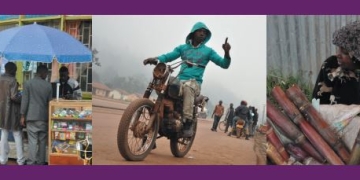
KAMPALA: The contractual fallout between the Uganda National Roads Authority (UNRA) and Kuwait firm, Abuljebain Engineering Consulting Office (AECO) over the Tirinyi-Pallisa-Kumi/Pallisa-Kamonkoli road has reached a point of no return, with either party stuck to their guns.
And in their latest exchanges, UNRA executive director Allen Kagina penned down 10 reasons why she terminated AECO’s contract as the supervising engineers for the Shs 489 billion road project in eastern Uganda.
Kagina, among the 10 grounds, is bitter that AECO wrote to President Museveni in a bid to have their contract reinstated. By writing to the President, Kagina argues that AECO breached the confidentiality clause in the contract with UNRA.
“Sub-clause 22.1 of the GCC (General Conditions of Contract) requires the consultant and his staff (Experts) to get a written consent from UNRA prior to communicating to any person or entity any information in the course of the services. However, the consultant copies all correspondences to the Islamic Development Bank and at times to His Excellency the President of the Republic of Uganda contrary to the contract provisions,” Kagina stated in her letter dated February 3, 2022.
Kagina’s letter was addressed to AECO director Wail K. Abuljebain and copied to Dr Issahag Umar Iddrisu, the regional hub manager Kampala for the Islamic Development Bank.
The all-powerful UNRA boss also accused AECO of breaching the insurance clause, delaying to submit monthly progress reports, key staff abandoning site and deducting the some money from the contractor (Arab Contractors)’s payment claim, among others.
In their 106-page response dated February 13, 2022, AECO dismissed Kagina’s claims and insisted on being allowed to carry out structural tests on the entire road project before signing it off as completed.
With a looming May 12, 2022 deadline, set by the Islamic Development Bank (the project funder), the stand-off between UNRA and AECO could cost Uganda more than $50 million in payments to the Arab Contractors and withdrawal of a grant for the construction of Pallisa and Kumi town roads.

BACKGROUND
In 2019, AECO won the contract to supervise engineering designs and building works for the 111.25-kilometer Tirinyi-Pallisa-Kumi/Pallisa-Kamonkoli road project. But the Kuwait firm has since fallen out with UNRA, the implementing agency, over alleged breach of contract and corruption.
The Islamic Development Bank funded the Tirinyi-Pallisa-Kumi/Pallisa Kamonkoli road with a loan of Shs 489 billion. Egyptian firm, Arab Contractors, won the bid as the main contractors for the two-lot project.
According to documents, AECO signed the contract with UNRA on November 16, 2019 after being declared winners through a competitive bidding procurement process. UNRA wrote on November 7, 2019, announcing AECO’s winning bid.
But UNRA delayed to sign the contract for 16 months while construction works progressed without allowing AECO on site. It is worth noting that the Solicitor General cleared the procurement process on October 21, 2019.
On December 26, 2019, AECO Director Wail Abuljbain wrote to UNRA protesting the delay. He demanded that UNRA allows his company to start work but was ignored until mid-March, 2021. When they got on site, AECO found UNRA engineers had already done the supervision work and were asked to just approve it, a request the Kuwait firm declined.
That set off the ugly conflict between UNRA and AECO, with the latter seeking the attention of President Museveni to resolve it. However, the two parties have not reached any agreement despite the President’s directive to the UNRA boss to find an amicable solution.
In one of its previous correspondences, UNRA argued that the Tirinyi-Pallisa-Kumi /Pallisa-Kamonkoli road is considered the ‘smoothest in Uganda, with an international roughness index averaging 1.3 m/km. Therefore, the country’s roads agency said its engineers demonstrated they can deliver and they did not want to undermine such by allowing AECO to tarnish the achievement.
It is worth noting that UNRA and AECO also fell out on almost similar grounds on the Masindi Kisanja-Tangi-Paraa-Buliisa road, one of the oil roads in the country’s mineral-rich Graben region.
In November 2018, UNRA awarded the supervising contract to AECO, with China Communications Construction Company Limited (CCCC), as the main contractor for the 159-kilometre road, which is nearing completion soon.
In almost similar fashion, the working relationship between UNRA and AECO soared over supervision and altered road designs. This culminated into UNRA terminating AECO’s contract on August 19, 2020.
UNRA replaced AECO with PROME Consultants, a local firm, which had earlier been sub-contracted by the Kuwait firm as their local partners on the project.
In the termination letter, UNRA stated that AECO failed to mobilize staff, make monthly reports and refused to approve the contractor (CCCC)’s submissions and instructions in time, among others. AECO dismissed all UNRA’s reasons as lies, and petitioned President Museveni.
In the end, AECO, through their lawyers, OSH Advocates and Kampala Associated Advocates filed a claim amounting to $ 5 million before the arbitration panel and the hearing is ongoing.




















